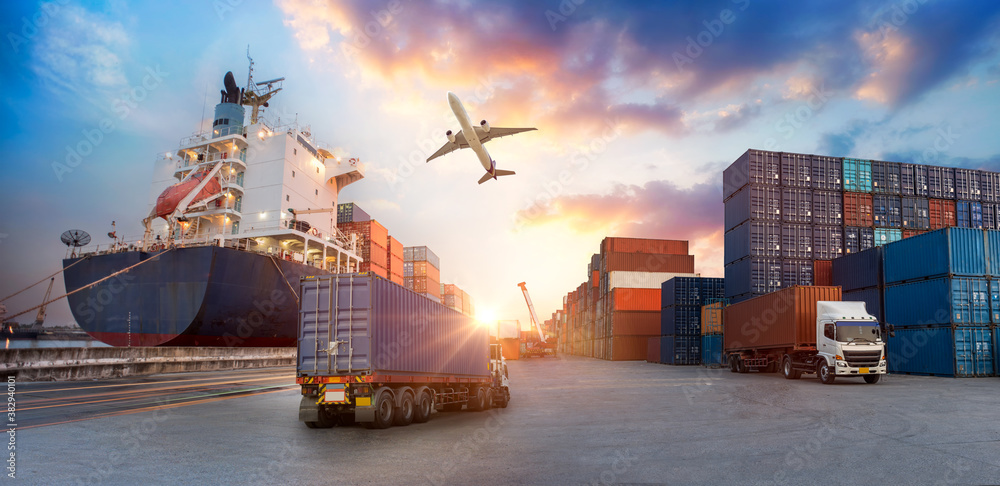

Introduction
The supply chain and logistics industry stands at the cusp of a transformative era, fueled by the rapid advancements in Artificial Intelligence (AI) technology. From optimizing inventory management to revolutionizing last-mile delivery, AI is reshaping the way businesses operate and interact within the global supply chain ecosystem. In this article, we delve into the top 10 AI trends that are poised to redefine the supply chain and logistics landscape on a global scale, driving efficiency, agility, and innovation.
1. Predictive Demand Forecasting
AI-powered predictive analytics is revolutionizing demand forecasting, enabling supply chain professionals to anticipate market trends and customer preferences with unprecedented accuracy. By analyzing historical data, market signals, and external factors, AI algorithms can forecast demand fluctuations, mitigate supply chain disruptions, and optimize inventory levels, thereby minimizing stockouts and excess inventory costs.
2. Autonomous Vehicles and Drones
The integration of AI-driven autonomous vehicles and drones is revolutionizing transportation and logistics operations, offering faster, safer, and more cost-effective delivery solutions. From self-driving trucks and delivery vans to aerial drones for last-mile delivery, autonomous technologies powered by AI are enhancing efficiency, reducing delivery times, and minimizing human errors in transportation logistics.
3. Smart Warehousing and Robotics
AI-powered robotics and automation are transforming traditional warehouses into smart, highly efficient fulfillment centers. With the deployment of robotic systems for goods picking, packing, and sorting, warehouses can optimize space utilization, accelerate order processing, and enhance inventory accuracy. AI algorithms also enable predictive maintenance of robotic systems, ensuring uninterrupted operations and minimizing downtime.
4. Supply Chain Visibility and Transparency
AI-driven supply chain visibility solutions provide real-time insights into the entire supply chain network, enabling businesses to track shipments, monitor inventory levels, and identify potential bottlenecks or disruptions proactively. By leveraging IoT sensors, RFID technology, and AI analytics, companies can achieve end-to-end visibility and transparency across their supply chain, enhancing decision-making and customer satisfaction.
5. Dynamic Route Optimization
AI-powered route optimization algorithms are revolutionizing logistics and transportation management by dynamically optimizing delivery routes in real-time. By considering factors such as traffic conditions, weather forecasts, delivery windows, and vehicle capacity, these algorithms ensure efficient and cost-effective delivery operations, minimizing fuel consumption, reducing carbon emissions, and improving delivery accuracy.
6. Enhanced Customer Experience
AI-driven personalization and recommendation engines are transforming the customer experience in the supply chain and logistics industry. By analyzing customer data, purchase history, and preferences, AI algorithms can offer personalized product recommendations, delivery options, and order tracking updates, thereby enhancing customer satisfaction, loyalty, and retention.
7. Sustainability and Green Logistics
AI is playing a crucial role in promoting sustainability and environmental conservation in the supply chain and logistics sector. From optimizing delivery routes to minimizing packaging waste, AI-driven solutions help businesses reduce their carbon footprint and embrace green logistics practices. By leveraging AI analytics, companies can identify opportunities to optimize energy consumption, reduce emissions, and adopt eco-friendly transportation alternatives.
8. Blockchain for Supply Chain Traceability
The integration of AI and blockchain technology is revolutionizing supply chain traceability and transparency, enabling end-to-end visibility and provenance tracking of goods and materials. By recording transactions on a secure, immutable ledger, blockchain ensures data integrity and authenticity throughout the supply chain, mitigating the risk of counterfeit products, enhancing regulatory compliance, and building trust among stakeholders.
Conclusion
In conclusion, AI is driving a paradigm shift in the supply chain and logistics industry, ushering in a new era of efficiency, agility, and innovation. From predictive demand forecasting and autonomous vehicles to smart warehousing and blockchain traceability, the top 10 AI trends discussed in this article are reshaping every aspect of the supply chain ecosystem on a global scale. As businesses embrace these transformative technologies, they will gain a competitive edge, improve operational resilience, and deliver unparalleled value to customers in the rapidly evolving marketplace of the future.













